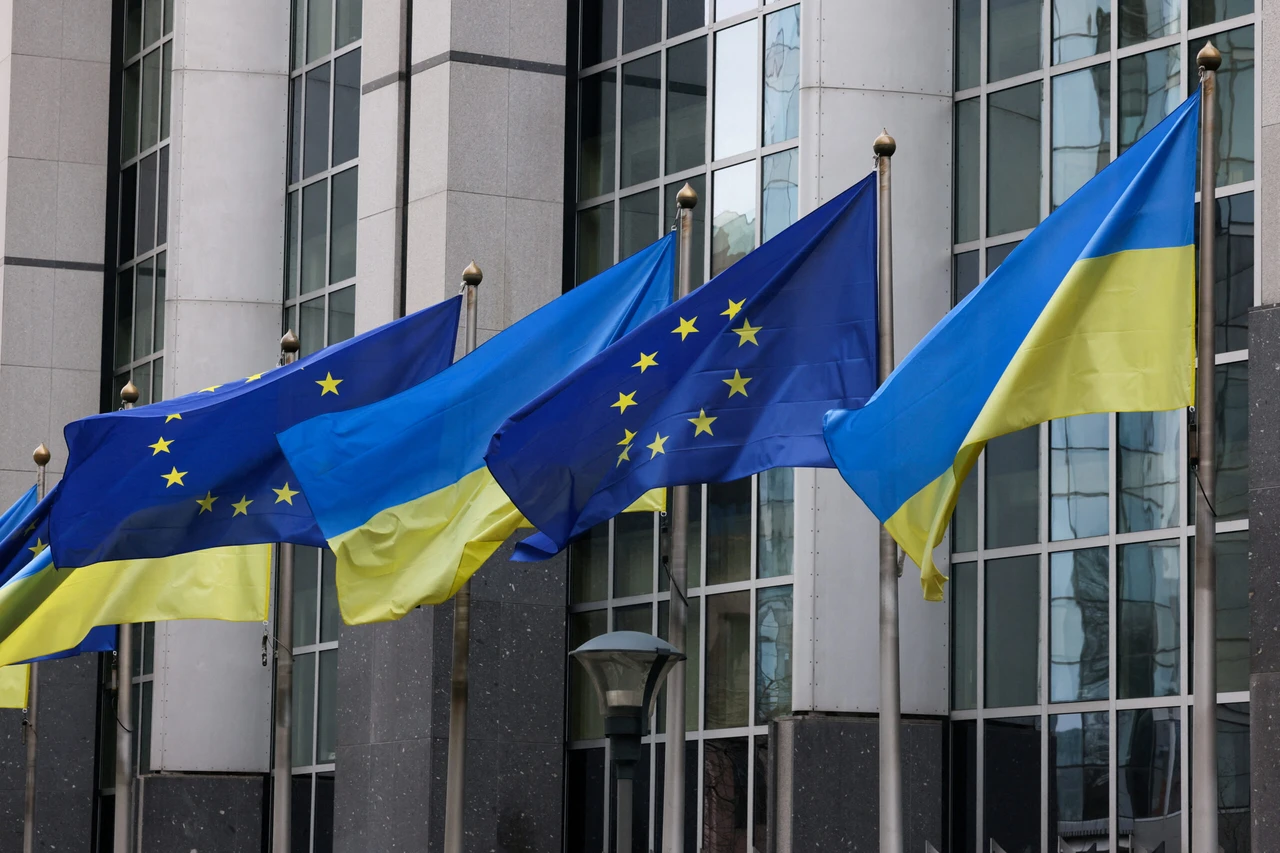EU allocates $1.5B from frozen Russian assets to aid Ukraine
 Flags of Ukraine fly in front of the EU Parliament building on the first anniversary of the Russian invasion, in Brussels, Belgium February 24, 2023. (Reuters)
Flags of Ukraine fly in front of the EU Parliament building on the first anniversary of the Russian invasion, in Brussels, Belgium February 24, 2023. (Reuters)
The European Union has moved forward with plans to allocate 1.4 billion euros ($1.5 billion) from frozen Russian assets to support Ukraine, overcoming objections from Hungary that had stalled the process.
The decision, finalized during a meeting of EU foreign ministers in Luxembourg on Monday, marks a significant step in utilizing the interest accrued from approximately 200 billion euros of Russian assets frozen in European banks following Russia’s 2022 invasion of Ukraine.
The funds, earmarked for Kyiv, are part of an annual interest pool totaling roughly three billion euros.
EU Foreign Affairs Chief Josep Borrell emphasized the swift deployment of these resources. “The windfall profits coming from Russian assets frozen in Europe, not the assets themselves, will be used in the swiftest possible manner for the benefit of Ukraine,” Borrell stated.
He outlined a timeline, noting that “1.4 billion euros will be available in the course of next month, and another billion by the end of the year.”
The legal pathway to unlock these funds bypassed Hungary’s objections, leveraging a mechanism that does not require unanimous approval from all member states. Hungary, which abstained from an earlier vote on the issue, expressed frustration over being sidelined. Hungarian Foreign Minister Peter Szijjarto condemned the decision, accusing the EU of disregarding established European protocols. “By completely ignoring European rules, Hungary was quite simply left out of the decision-making process,” Szijjarto remarked. “This is a clear red line. Never before has such shameless disregard for common European rules been shown.”
Despite Hungary’s resistance, the EU’s move is expected to provide critical financial support to Ukraine amidst ongoing conflict. The allocation comes on the heels of a broader international effort, including a G7 plan to provide Ukraine with a $50 billion loan backed by various assets, which is anticipated to replace the current EU scheme in due course.
The disbursement of funds represents a coordinated effort by the EU to bolster Ukraine’s defenses and support its resilience against external aggression while navigating internal challenges within the bloc regarding strategic decisions on Russia-related matters.



